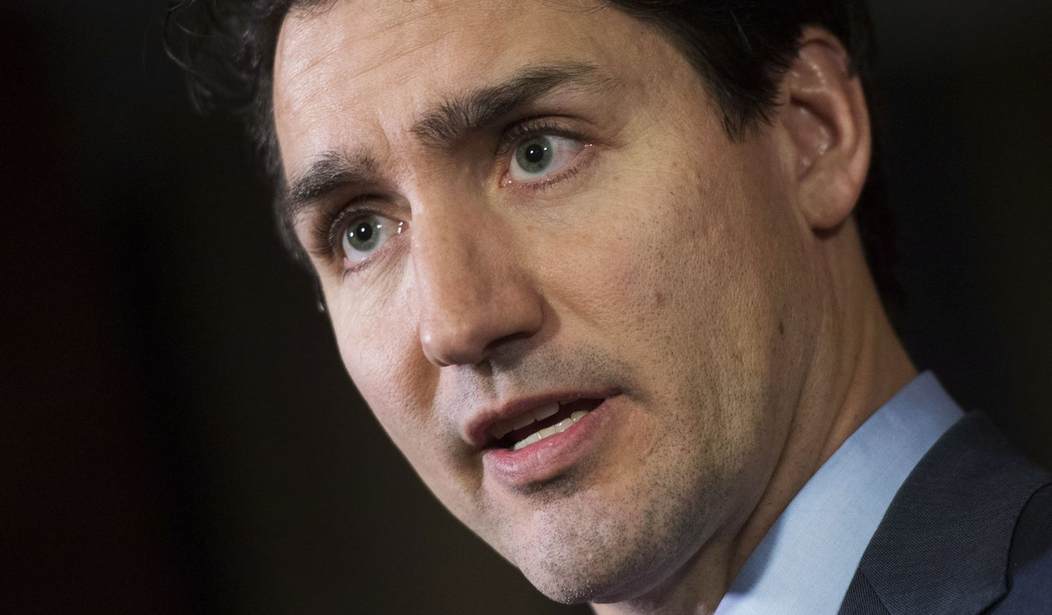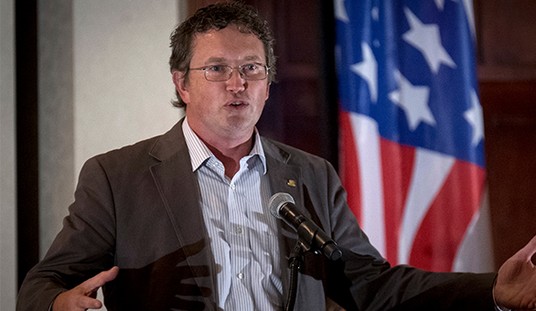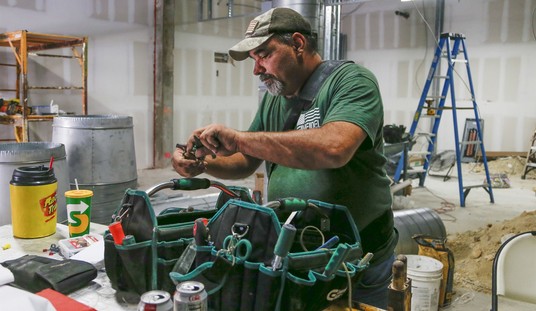Everyone Leftists don’t like is a Nazi, and it has become a hallmark of lazy political discourse to accuse someone of being just like Hitler. But that doesn’t mean that no one in the modern world has any ideological or practical resemblance to the Führer. When he invoked Canada’s Emergencies Act on Feb. 14, Justin Trudeau invited comparisons to March 23, 1933, when Hitler administered the coup de grace to democracy in Germany with the Enabling Act, which gave him dictatorial powers. There are similarities (and differences), and they’re enlightening.
Trudeau based his case on the claim that the Freedom Convoy was “not a peaceful protest,” which was flatly false and ironic in light of his bland response to the burning of churches and toppling of statues in Canada last summer. He claimed that the Freedom Convoy was hurting the Canadian economy: “at the borders in different places in the country, the blockades are harming our economy and endangering public safety. Critical supply chains have been disrupted. This is hurting workers who rely on these jobs to feed their families.”
The Emergencies Act authorizes the government of Canada to “take special temporary measures that may not be appropriate in normal times.” These include “the regulation or prohibition of any public assembly that may reasonably be expected to lead to a breach of the peace.” Deputy Prime Minister Chrystia Freeland gave the Act more teeth than that, announcing that the Freedom Convoy’s bank accounts would be frozen: “the government is issuing an order with immediate effect, under the Emergencies Act, authorizing Canadian financial institutions to temporarily cease providing financial services where the institution suspects that an account is being used to further the illegal blockades and occupations.”
In his address, Trudeau made an important promise: “the scope of these measures will be time-limited, geographically targeted, as well as reasonable and proportionate to the threats they are meant to address.”
Adolf Hitler said many similar things in arguing that he needed dictatorial powers. On Feb. 27, 1933, just four weeks after Hitler became Chancellor, the Reichstag, the German parliament building in Berlin, caught fire. The culprit was a Dutch Communist, Marinus van der Lubbe, who apparently had acted alone, although many charged that the whole thing was a Nazi false flag to enable them to institute a dictatorship. Hitler, however, insisted that the Communist Party, which was a considerable force within the Reichstag, had set the fire, and pressed German President Paul von Hindenburg to approve of an emergency law suspending civil liberties. Communist leaders, including the Communist members of the Reichstag, were hunted down and arrested.
The Enabling Act allowed Hitler to enact laws without Reichstag approval and with the same dispatch that Trudeau once admired about Communist China: “Laws enacted by the Reich government shall be issued by the Chancellor and announced in the Reich Gazette. They shall take effect on the day following the announcement, unless they prescribe a different date.”
Like Canada’s Emergencies Act, all this was supposed to be only temporary; the Enabling Act was set to expire on April 1, 1937. Once Hitler had consolidated his power and destroyed all the opposition parties, however, there was no question that the Enabling Act would continue: it was renewed by Hitler’s rubber-stamp National Socialist Reichstag in 1937 and 1939, and by decree in 1941 and 1943, the latter time without a time limit.
In his March 23, 1933 speech, Hitler spoke of “the necessity of thoroughly rejecting the ideas, organizations, and men in which one gradually and rightly began to recognize the underlying causes of our decay.” He stated that “the program for the reconstruction of the Volk [German people] and the Reich is determined by the magnitude of the distress crippling our political, moral and economic life. Filled with the conviction that the causes of this collapse lie in internal damage to the body of our Volk, the Government of the National Revolution aims to eliminate the afflictions from our völkisch life which would, in future, continue to foil any real recovery.” Hitler accused the Communists of “pillaging, arson, raids on the railway, assassination attempts, and so on–all these things are morally sanctioned by Communist theory.”
Hitler claimed that the rule of the iron fist was needed in order to revive Germany’s economic fortunes: “To deal with the economic catastrophe, the following is necessary: 1. an absolutely authoritarian leadership at home to create confidence in the stability of conditions; 2. safeguarding peace on the part of the major nations for a long time to come and thus restoring the confidence of the people in one another; and 3. the final triumph of the principles of common sense in the organization and leadership of the economy as well as a general release from reparations and impossible liabilities for debts and interest.”
Related: Bill Maher Says Trudeau Sounds Like Hitler, and He’s Right
Hitler, like Trudeau, promised that his use of the Enabling Act would be limited: “The Government will only make use of this authorization insofar as this is requisite for the implementation of vital measures.”
It would be facile and unfair to say that Hitler’s Enabling Act and Trudeau’s Emergencies Act are one and the same. Despite the soundness of Bill Maher’s observation, Trudeau is not Hitler and is not likely to become a bloodthirsty despot. However, the Enabling Act shows the pitfalls of what Trudeau has now done in Canada, and how easily an Act that allows a government to bypass ordinary procedures designed to protect the rights of citizens can be abused.
Both Hitler and Trudeau situated the need for their Acts in the context of a pressing national emergency that could not be dealt with any other way. Chrystia Freeland claimed that “These illegal barricades are doing great damage to Canada’s economy and to our reputation as a reliable trading partner.” Trudeau and Freeland were clear: the Freedom Convoy was entirely responsible for these alleged economic setbacks, and thus had to be ended for the good of the people. For his part, Hitler claimed that his Enabling Act was necessary to break the power of “criminals” who were destroying Germany’s economic and cultural life.
Both Freeland and Hitler promised ruthless action against those whom they cast as enemies of the people. No one expects Canada to act as ruthlessly as National Socialist Germany did, but there is no doubt that Trudeau and Freeland have embarked upon an extremely dangerous road, and one that lends itself, as the history of Nazi Germany proves conclusively, to all manner of human rights abuses. Once one’s political opponents have been blamed for all the ills the nation is suffering, and one is freed from the need to obtain court orders or respect due process, what remains to restrain the unscrupulous?
The Enabling Act and the Emergencies Act both streamline their governments by freeing them from having to deal with such legal niceties. But whether or not Justin Trudeau ever really abuses such powers, someone could, and there would be nothing in place to restrain him. This is how republics die.










Join the conversation as a VIP Member